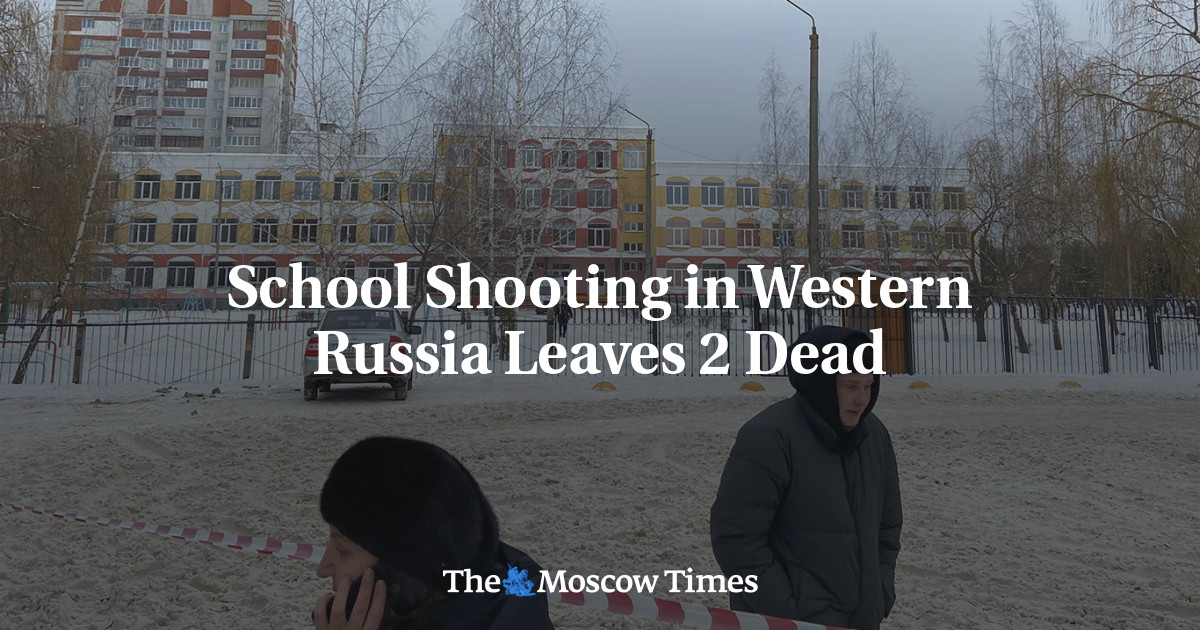
A Russian teenager has shot dead a classmate and injured five others before killing herself at a school in western Russia, investigators said Thursday.
Russia’s Investigative Committee, which probes major crimes, said a 14-year-old student who brought a pump-action shotgun to the school was among the dead.
The Investigative Committee said it had launched a criminal probe.
Russia’s government newspaper Rossiiskaya Gazeta published footage from the scene of the shooting at Gymnasium No. 5 in the city of Bryansk, located just over 100 kilometers from the border with Ukraine.
“Someone from the eighth-grade shot and killed someone,” said one of the students who filmed a crowd of evacuees gathered outside the school.
Health officials said the five injured students had been hospitalized, adding that one of the victims of the attack was in “critical condition.”
Law enforcement authorities did not name the shooter, but they said they had detained her father for questioning, according to the state-run news agency TASS.
Bryansk Governor Oleg Bogomaz called Thursday’s shooting a “terrible tragedy” and vowed to find out how the teenager was able to bring a gun into school and kill her classmate.
“The families of the killed girl and injured children will be provided all the necessary assistance,” Bogomaz said on the messaging app Telegram.
TASS quoted a source in the operational services as saying that the school’s metal detectors had not been working, allowing the girl to enter the school with the shotgun and a knife unnoticed.
Mass shootings at schools and universities in Russia were rare until 2021, when the country was rocked by two separate killing sprees in the central Russian cities of Kazan and Perm that spurred lawmakers to tighten laws regulating access to guns.
At the time, President Vladimir Putin called for a review of gun control laws, and the minimum age to acquire hunting rifles was raised from 18 to 21 and mental health checks were tightened.
Authorities have blamed previous school shootings on foreign influences, arguing that young Russians have been exposed online and through television to similar attacks in the United States and elsewhere.